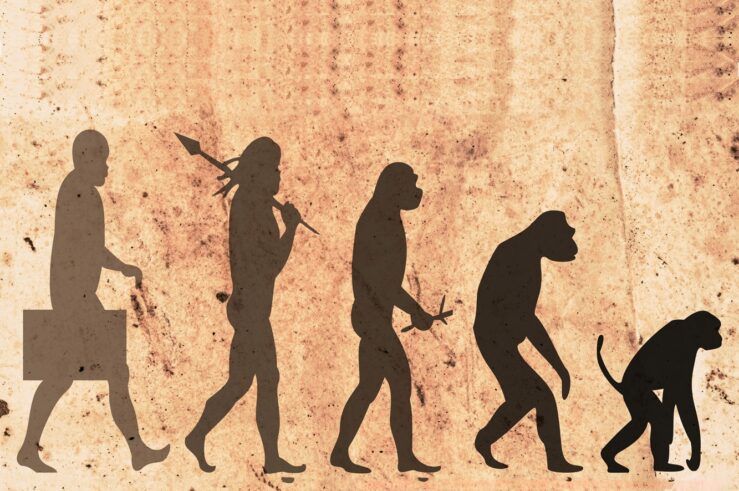Showing results for: “price gouging”
Where Are the New FTC Rules?
Perhaps more than at any time in its history, the Federal Trade Commission (FTC) under Chair Lina Khan has highlighted substantive rulemaking as a central element of its policy agenda. But despite a great deal of rule-related sound and fury (signifying nothing?), new final rules have yet to emerge, and do not appear imminent. This ... Where Are the New FTC Rules?
Has the Biden Administration Taken Over Broadband?
Betteridge’s Law of Headlines states: “Any headline that ends in a question mark can be answered by the word no.” But, apparently, folks in the nation’s capital found a way around Betteridge’s Law. This week, a U.S. House subcommittee hearing featured testimony from all five members of the Federal Communications Commission (FCC). The majority on ... Has the Biden Administration Taken Over Broadband?
Google, Amazon, Switching Costs, and Red Herrings
Way back in May, I cracked wise about the Federal Trade Commission’s (FTC) fictional “Bureau of Let’s Sue Meta,” noting that the commission’s proposal (really, an “order to show cause”) to modify its 2020 settlement of a consumer-protection matter with what had then been Facebook—in other words, a settlement modifying a 2012 settlement—was the FTC’s ... Google, Amazon, Switching Costs, and Red Herrings
A Brief History of the US Drug Approval Process, and the Birth of Accelerated Approval
This is the second post about the U.S. drug-approval process; the first post is here. It will explore how the Food and Drug Administration (FDA) arose, how disasters drove its expansion and regulatory oversight, and how the epidemic of the human immunodeficiency virus (HIV) changed the approval processes. The Arrival of New Medicines Lone inventors, ... A Brief History of the US Drug Approval Process, and the Birth of Accelerated Approval
Latin America Should Follow Its Own Path on Digital-Markets Competition
In order to promote competition in digital markets,[1] Latin American countries should not copy and paste “solutions” from other jurisdictions, but rather design their own set of policies. In short, Latin American countries—like my own, Peru—should not “put the cart before the horse” and regulate markets that are not yet mature. Digital or “tech” markets ... Latin America Should Follow Its Own Path on Digital-Markets Competition
Net Neutrality and Broken Records
I don’t mean to sound like a broken record, but why is the Federal Communications Commission (FCC) playing a broken record? I’ve been writing a fair bit about Federal Trade Commission (FTC) rulemaking initiatives. On the theory that you deserve a nominal break from all of that, this post is mostly about the FCC. On ... Net Neutrality and Broken Records
The Biden Executive Order on AI: A Recipe for Anticompetitive Overregulation
The Biden administration’s Oct. 30 “Executive Order on the Safe, Secure, and Trustworthy Development and Use of Artificial Intelligence” proposes to “govern… the development and use of AI safely and responsibly” by “advancing a coordinated, Federal Government-wide approach to doing so.” (Emphasis added.) This “all-of-government approach,” which echoes the all-of-government approach of the 2021 “Executive ... The Biden Executive Order on AI: A Recipe for Anticompetitive Overregulation
Gotta Go Fast: Sonic the Hedgehog Meets the FCC
Federal Communications Commission (FCC) Chair Jessica Rosenworcel this week announced a notice of inquiry (NOI) seeking input on a proposal to raise the minimum connection-speed benchmarks that the commission uses to define “broadband.” The current benchmark speed is 25/3 Mbps. The chair’s proposal would raise the benchmark to 100/20 Mbps, with a goal of having ... Gotta Go Fast: Sonic the Hedgehog Meets the FCC
When Progress Is Regressive: The Ordo-Brandeisian Devolution
It is no coincidence that ordoliberalism—the European (originally German) alternative to classical liberalism that emphasized the importance of the “social market” economy—and the New Brandeis or “neo-Brandeisian” movement, which harkens back to the Progressive Era thought of the late U.S. Supreme Court Justice Louis Brandeis, both are enjoying comebacks simultaneously. The effects of these ideological ... When Progress Is Regressive: The Ordo-Brandeisian Devolution
Market Power as a Limiting Principle in Merger Enforcement
One of the most important changes in the Federal Trade Commission (FTC) and U.S. Justice Department’s (DOJ) draft merger guidelines is the abandonment of market power as the central element of merger enforcement. The “unifying theme” of the 2010 horizontal merger guidelines was that “mergers should not be permitted to create, enhance, or entrench market ... Market Power as a Limiting Principle in Merger Enforcement
Everyone Discriminates Under the FCC’s Proposed New Rules
The Federal Communications Commission’s (FCC) proposed digital-discrimination rules hit the streets earlier this month and, as we say at Hootenanny Central, they’re a real humdinger. It looks like the National Telecommunications and Information Agency (NTIA) got most of their wishlist incorporated into the proposed rules. We’ve got disparate impact and a wide-open door for future ... Everyone Discriminates Under the FCC’s Proposed New Rules
Why Armen Alchian Is the GOAT
Tyler Cowen has a new online book out titled “GOAT: Who is the Greatest Economist of All Time, and Why Does it Matter?” While there are potential problems in treating ideas like basketball, the project is a fun, fast read overall. As the author of a newsletter with frequent gifs, I’m all for encouraging light-hearted ... Why Armen Alchian Is the GOAT
















